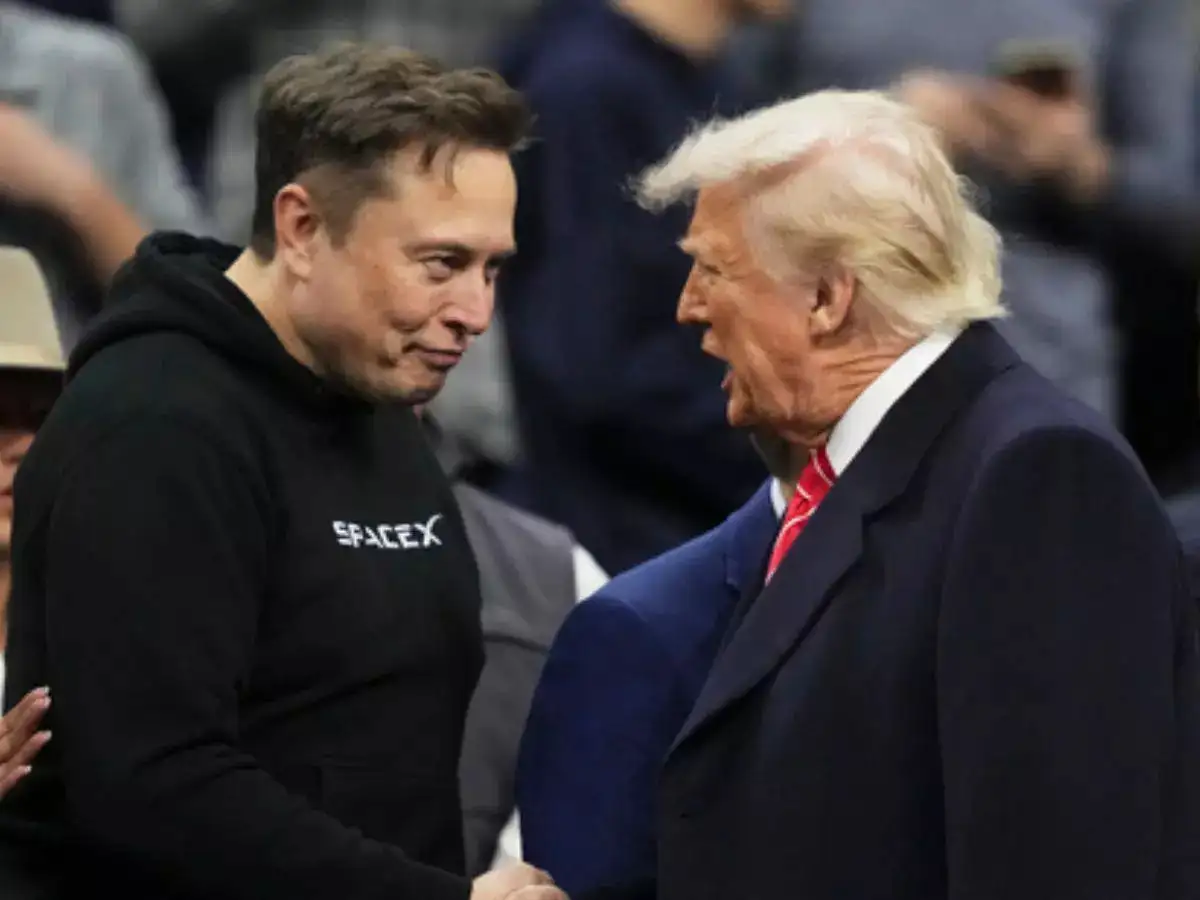In a stunning political turn, Elon Musk has publicly expressed support for impeaching President Donald Trump, declaring that the former president is unfit to lead the United States. This unexpected statement follows a fierce public dispute between the billionaire entrepreneur and the president, culminating in Trump threatening to revoke Musk’s lucrative government contracts.
Once a staunch Trump ally and significant donor, Musk’s sharp criticism of the president’s policies marks a dramatic breakdown in their alliance. The feud escalated after Trump openly criticized Musk during an Oval Office meeting, prompting a swift, public exchange of accusations on social media platforms, including Trump’s Truth Social and Musk’s X (formerly Twitter).
Trump threatened to cut billions in government subsidies and contracts awarded to Musk’s companies, including Tesla and SpaceX. This announcement triggered a massive sell-off in Tesla shares, which plunged by over 14%, wiping out approximately $150 billion in market value—Tesla’s largest single-day loss ever.

Shortly after the stock market closed, Musk responded affirmatively to a social media post asking if Trump should be impeached, signaling his shift from supporter to critic. Despite the Republican control of Congress making impeachment unlikely, Musk’s endorsement reflects growing tensions within the party.
The rift originated from Musk’s opposition to Trump’s tax-cut and spending bill, which Musk condemned for increasing the national debt, currently over $36 trillion. Musk argued that the bill was fiscally irresponsible, while Trump accused him of opposing it due to cuts on electric vehicle tax credits, a key incentive for Tesla.
During a press briefing in the Oval Office, Trump expressed disappointment in Musk and hinted at the end of their once-close relationship. Musk, in turn, highlighted his substantial financial support during Trump’s 2024 campaign, stating that without him, Trump would not have won the election.
Musk also warned that Trump’s tariff policies could push the U.S. economy into a recession, further intensifying their public clash. The ongoing dispute threatens to fracture Republican unity ahead of the upcoming midterm elections, as Musk’s influence in Silicon Valley and his large social media following could sway voters.
As the former head of the Department of Government Efficiency, Musk pushed for sweeping federal budget cuts and workforce reductions during his brief tenure. Despite promising to save trillions, he managed only marginal budget reductions before resigning amid internal clashes and growing disillusionment.
The Musk-Trump fallout showcases the challenges of political alliances built on mutual benefit but tested by diverging priorities and public scrutiny. With Musk now openly challenging Trump’s leadership and proposing the formation of a new political party, the future dynamics within the Republican Party and American politics remain uncertain.




